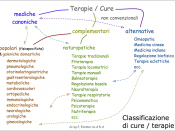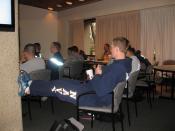Cardiac and Respiratory Alternative/Complementary Therapy
With the increase in access to information, clients are increasingly taking control over their own care. Many are searching for therapies that will relieve the symptoms of chronic or acute illness. Registered nurses are interested in alternative or complementary therapies because of the emphasis on a holistic approach to care. The holistic approach, to care, focuses on the mind-body-spirit relationship. Florence Nightingale believed that "...nursing is putting us in the best possible conditions for Nature to restore or to preserve health - to prevent or to cure disease or injury" (Nightingale, 1957, p. 334). It was Nightingale's belief that the individual's efforts were central to his/her own healing.
Alternative therapy includes those therapies that are outside of conventional care and may be tried instead of conventional care. Complementary therapy, therapies used to complement conventional treatment and care. Nurses in their work and at home use alternative and complementary therapies massage, aromatherapy and therapeutic touch, extensively.
Nurses have more interaction with patients than any other health care professional; therefore they are in the unique position of being able to respond to the needs and wishes of patients, and they see at first hand the effects of complementary therapies.
In situations where clients want to explore or have initiated alternative/complementary therapy, the registered nurse must:
1. Provide information about conventional health care treatment as well as the
alternative or complementary therapy, how each can be accessed, and the
costs that may be involved.
2. Be non-judgmental in supporting the client's exploration of the therapies.
3. Recognize the client's autonomy in decision-making.
4. Assist the client to find accurate information in order that the choices made by the client are informed choices. This includes information on potential risks, benefits, and limitations of the therapy.
5. The registered nurse...


